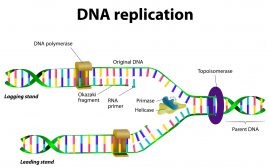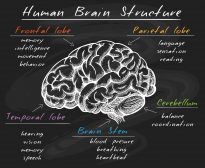Definition
noun
A cluster of genes on a particular chromosome that specify major histocompatibility antigens
Supplement
Major histocompatibility complex (acronym: MHC) refers to a cluster of genes that are located next to or near each other on a particular chromosome. These genes specify for major histocompatibility antigens, which are mostly glycoproteins expressed on the cell surface.
The expression of MHC molecules on the cell surface accounts for histocompatibility, i.e. tissue compatibility. In other words, the cells from one individual can be distinguished from the cells of another based on the MHC molecules when the MHC genes are expressed. This is essential as MHC molecules enable the immune system to distinguish self from non-self (foreign) cells. For instance, the cell displays on its cell surface a fraction of a protein (called epitope), which can either be self-antigens (i.e. major histocompatibility antigens) or non-self antigens. The non-self antigens are epitopes from destroyed pathogens.
MHC molecules are also essential as they determine the compatibility of donors for organ transplants.
MHC includes the human leukocyte antigen (HLA) in humans, H-2 complex in mice, RLA in rabbits, RT 1 in rats, DLA in dogs, SLA in pigs, etc.
Abbreviation/Acronym:
- MHC
See also:
Related term(s):
- major histocompatibility complex I
- major histocompatibility complex II
- major histocompatibility complex III







